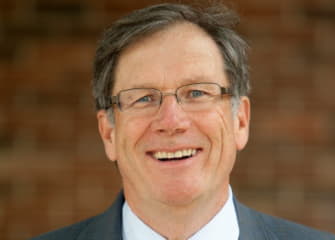
Francis Kirley
Click here for Part I, Part II & Part III
Francis Kirley heads Nexion Health, one of the largest nursing home chains in the country. His journey to the top has rarely been easy but always self-made and eventful.
He first fashioned a “fabulous childhood” out of being an orphaned teenager, started work at a pharmacy and put himself through pharmacy school, and became an interim administrator of Martha’s Vineyard Hospital when just 27. Kirley went on to business school, and turned a job loss into exciting and successful entrepreneurship.

“I got to Martha’s Vineyard because a good friend of mine bought the stamp to send my resume to Martha’s Vineyard to apply as a director of pharmacy position,” Kirley recalled in an interview with citybizlist’s Edwin Warfield, underplaying his own proactive role.
In a career spanning over three decades in healthcare, Kirley has learned to be “leaner, meaner and more efficient,” in order to survive. That philosophy has served Nexion well, besides positioning it well for the future.
“We’re looking at acquisitions on a one-by-one basis. Some of our landlords, Omega Healthcare has talked to us about other possibilities. We will add assets that bring synergy and a creative potential to the financial viability. I’m excited for the next five years,” Kirley said in the interview.
EDWIN WARFIELD: Forty skilled nursing and rehabilitations campuses in three different states – Colorado, Louisiana and Texas. A 2012 article estimated your annual revenue at $230 million. Do you mind sharing you revenue today?
FRAN KIRLEY: Nexion, we are considered in the industry to be a large operator because we operate greater than 40 buildings. Usually 40 or larger is considered to be a large operator, but we’re pretty much a high acuity provider. As our rehab component and quality of product line, like a couple of things. One is that we have two ventilator-dependent driven facilities. We have one of only six pediatric nursing homes in America that handles, its called Truman Smith in Gilmer, Texas. We average a hundred patients that are under the age of 18. They are all usually either ventilator-dependent or tracheotomy. They go to school in the building or they get on the bus whatever, so, and that’s a niche that we have a kind of have a good experiences. We have another building in Meadowview, in Minden, Louisiana, that has 80 ventilator or high respiratory care patients. We feel very comfortable in developing and maintaining a high acuity in our buildings. We have respiratory expertise, we have wound care expertise. We won an award a number of years ago for using this little tool to Skype every wound patient in our building so whenever a wound is admitted to our building, they FaceTime with the wound care nurses to make sure that we get an initial photograph and then we can leverage that one nurse between all of our buildings by using technology.
Our strategy over the last three to five years is (to) build the acuity capabilities of our buildings. We can do tracheotomies, we can do ventilators, we can do I.V. therapy, we can do total nutrition and a variety of other components including complicated wound care, that, that we have the capabilities of higher RN coverage. A lot of our buildings have full-time nurse practitioners in the building so that we can manage that level of care because the industry is changing from a reimbursement perspective. Hospitals get penalized now if we send them back to the hospital within 30 days of admission to us, and so that’s a statistic that we have to manage because if we’re sending them back to the hospitals too quickly, they won’t send them in the future, because they get penalized under their Medicare rate. The ability to manage acuity in our buildings is what we think we needed to do better and we’ve built a whole infrastructure to do that.
We probably are one of the leaders in this industry with telemedicine. We have telemedicine in a lot of our facilities. I think we have 10 buildings currently rolled out where if you need to talk to the physician, we can ping him, he can get on his iPhone, his iPad, or his laptop and have a face-to-face conversation as often as necessary, and that’s given us the ability to have the families and the residents feel comfortable. They can sit their and talk to their doctor and say, hey, you know, I’m not feeling well. Let me look at your wound. We have an example recently when an orthopedic surgeon admitted 10 patients to our building, we’d have to put them in a bus, drive them to his office every Thursday and he would evaluate all those 10 patients.
Well this past Thursday, we said we want to do telemedicine. He goes well, you know, I really don’t believe in telemedicine. We said fine. We set him up, took those 10 patients, evaluated them, have the camera right on the device, showed him all the wounds, he said these are as good as me seeing them face-to-face. Instead of taking three hours to do that experience, it took us 30 minutes. Again, an example of saving his time, and us transportation time and moving his patients to and from his office. Adding clinical capabilities is really what Nexion has done over the last couple of years.
I think we’re beginning to position ourselves for what we consider to be quality. The industry through CMS and rule changes are being measured in quality outcomes. Readmission of hospitalization, antipsychotic usage, turnover rate of your employees are three examples. We as a company are focused on those things to get a re-hospital admission rate to be below the national average. To get our use of antipsychotics to be below the national and state averages. Because we’re eventually going to be measured and penalized if we are above the national average in our reimbursement. Acuity management, capabilities of managing the complexity of that, working intimately with the physician and telemedicine, get them on the team has proved to be hugely successful. We think we are positioned well for the next five years.
EDWIN WARFIELD: How is the business changing? What are the challenges in the skilled nursing business?
FRAN KIRLEY: Now our challenge will be delivering those things, enhancing the quality of staff. Recruitment challenges all the time, you know, getting therapists, nurses or whatever, and every geographical market in this country is challenging, because we compete with everybody for that. I think we as a company feel our quality, and we’ve, of the 36 buildings we have left, 27 of them have been bronze quality award winners under the Baldrige American Health Care model and SEVEN of them have been silver award winners.
We don’t have a gold yet. Our goal is to get one of those golds. Quality focus enhance capabilities of clinical outcomes by still managing financial opportunities because the way we get paid is managing what’s called a MDS, which is a dataset of tracking everything we do for these patients clinically to provide data to the third parties to reimburse us, so all those things play into that strategy.
We’re pretty excited about downsizing, just recently giving up 11 assets that we had for 16 years, ran them well, but they were in geographical markets that we didn’t get major upside. We couldn’t see, they were in rural, isolated locations and we did a great job but we don’t see how we can enhance them and grow the Medicare side of the business. Being leaner, meaner, more efficient, we think we’re well positioned for the future. We’ve added one assisted living.
We’re looking at acquisitions on a one-by-one basis. Some of our landlords, Omega Healthcare has talked to us about other possibilities. We will add assets that bring synergy and a creative potential to the financial viability. I’m excited for the next five years.
Connect with Fran on LinkedIn
Sponsored by:
Founded in 1993, WMS Partners is the only independent multi-family office in the Baltimore area that isn’t associated with a brokerage firm, bank or trust company. Our team of approximately 50 professionals and 14 owners spanning three generations assists in the direction of our client’s financial goals and objectives and oversees in excess of $3 billion in assets.
As our client’s advocate and central point for their financial affairs, we work pro-actively with service providers, including accountants, attorneys, consultants, insurance professionals and philanthropic advisors. We are large enough that we provide exposure to many unique ideas and strategies in the investment, estate, tax, financial advisory and risk management arena; but small enough to provide discreet, pro-active individualized guidance.


Edwin Warfield, CEO of citybizlist, conducts the CEO Interviews.
If you're interested in reaching CEOs, please contact edwin.warfield@citybuzz.co
Connect on LinkedIn



































